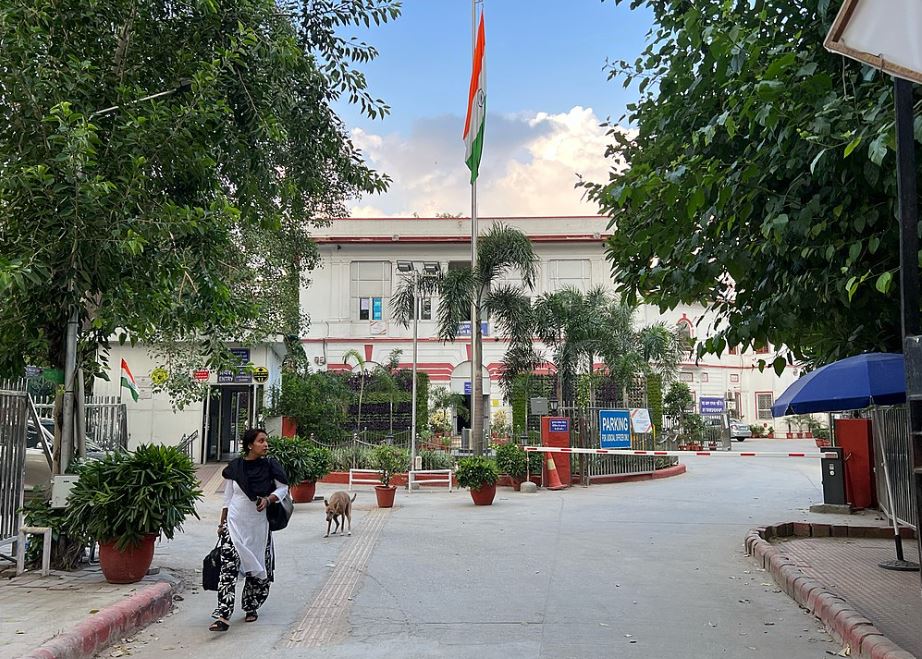In an extraordinary turn of events, a formidable delegation of 150 lawyers from the Delhi High Court and District Courts has raised the alarm over what they term as “unprecedented practices” within the judiciary. This delegation has addressed a letter to the Chief Justice of India, Justice D.Y. Chandrachud, delineating their grave concerns regarding the bail hearing of Delhi Chief Minister Arvind Kejriwal.
Allegations of Conflict of Interest
The central issue highlighted by the delegation pertains to a conflict of interest involving Justice Sudhir Kumar Jain. Justice Jain, who stayed the bail order of Chief Minister Arvind Kejriwal, has come under scrutiny due to his brother, Anurag Jain, serving as counsel for the Enforcement Directorate (ED). The lawyers assert that Justice Jain should have recused himself from the proceedings to avoid any semblance of bias, given his familial connection to the ED.
Transparency and Judicial Ethics
The delegation’s letter underscores the paramount importance of transparency and ethical conduct within the judiciary. The lawyers contend that Justice Jain’s failure to disclose this potential conflict of interest undermines the integrity of the judicial process. They emphasize that such lapses erode public confidence in the judicial system and compromise the principles of impartiality and fairness.
Unprecedented Judicial Actions
Further exacerbating the controversy, the lawyers have pointed out that Justice Jain permitted the ED’s challenge to Kejriwal’s bail to be listed and stayed the execution of the bail bond even before the original bail order was officially uploaded. This sequence of events, according to the delegation, is unprecedented in the annals of Indian judiciary. The lawyers argue that such actions set a dangerous precedent and call into question the procedural propriety of the court’s decisions.
Administrative Orders and Their Implications
Adding to their grievances, the lawyers have raised concerns about an internal administrative order issued by the District Judge of Rouse Avenue Court. This order directed Vacation Courts, which operate during the summer break, to refrain from issuing final orders and only issue notices for regular courts post-vacation. The timing of this order, coming immediately after the Vacation Court granted bail to Kejriwal, has led to suspicions about its intent and implications.
Undermining the Purpose of Vacation Courts
The delegation argues that the administrative order undermines the fundamental purpose of Vacation Courts, which is to handle urgent matters even during court vacations. By restricting Vacation Courts from making final decisions, the order effectively slows down the judicial process, causing undue delays in the disposal of urgent cases. The lawyers assert that this contravenes the spirit of speedy justice, which has been repeatedly advocated by the higher judiciary.
The Broader Impact on Judicial Efficiency
The administrative order has far-reaching implications for the judicial system’s efficiency. The delegation points out that many lawyers, whose cases were listed during the vacation period, have been unable to secure timely resolutions due to this order. They argue that this administrative directive not only hampers the functioning of the judiciary but also contributes to the backlog of cases, thereby clogging higher courts with appeals and petitions that could have been resolved at the lower levels.
A Call for Judicial Accountability
In their letter, the delegation has made a strong case for judicial accountability and administrative transparency. They urge the Chief Justice of India to take cognizance of these issues and ensure that such administrative orders are scrutinized and reviewed to align with the broader goals of justice and efficiency. The lawyers’ call for action highlights the urgent need for reforms that uphold the principles of transparency, impartiality, and expeditious justice within the judicial system.
Conclusion
The controversy surrounding the Kejriwal bail hearing has brought to the fore critical issues of judicial integrity and administrative transparency. The delegation of lawyers has not only highlighted specific instances of procedural irregularities but has also called for systemic reforms to ensure that the judiciary remains a bastion of fairness and impartiality. As the judiciary navigates these turbulent waters, it is imperative that the principles of transparency and accountability guide its decisions, restoring public confidence in the judicial process.
Key Learning Points
| Key Learning Points |
|---|
| Allegations of conflict of interest in Kejriwal’s bail hearing |
| Importance of transparency and ethical conduct in the judiciary |
| Unprecedented judicial actions questioned by legal fraternity |
| Administrative orders undermining the purpose of Vacation Courts |
| Impact of administrative orders on judicial efficiency |
| Call for judicial accountability and administrative transparency |
Soumya Smruti Sahoo is a seasoned journalist with extensive experience in both international and Indian news writing. With a sharp analytical mind and a dedication to uncovering the truth, Soumya has built a reputation for delivering in-depth, well-researched articles that provide readers with a clear understanding of complex global and domestic issues. Her work reflects a deep commitment to journalistic integrity, making her a trusted source for accurate and insightful news coverage.



